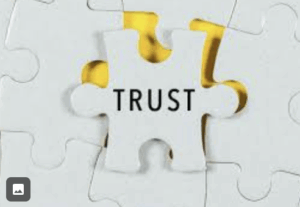As Houston and surrounding communities are left to pick up the pieces after hurricane Beryl and some are still without power after 8 days, we thought it was important to talk about mental health during times like these. Natural disasters can have a profound impact on mental health, leaving individuals and communities grappling with a range of emotions and psychological challenges. The aftermath of such events often brings about feelings of fear, anxiety, and grief, making it essential to address and support mental well-being during recovery. In this blog post, we will explore the common mental health effects of natural disasters, provide strategies for coping, and discuss the role of individual psychotherapy and play therapy for kids in the healing process.
Experiencing a natural disaster can be traumatic, leading to a variety of mental health symptoms. Events like a hurricane can affect anyone at any age. Especially kids who are not yet old enough to have the context for what has just happened. Some of the common psychological effects include:
1. Acute Stress Reaction
Immediately following a disaster, it is normal to experience acute stress reactions. Symptoms can include confusion, hyperarousal, intrusive memories, and emotional numbness.
2. Post-Traumatic Stress Disorder (PTSD)
Some individuals may develop PTSD, characterized by persistent intrusive memories, flashbacks, nightmares, and severe anxiety related to the disaster.
3. Anxiety and Depression
The uncertainty and loss associated with natural disasters can lead to heightened anxiety and depression. These conditions may manifest as constant worry, sadness, loss of interest in activities, and changes in sleep or appetite. For kids after a hurricane, this may look like excess fear or worry every time it rains or when there are dark clouds in the sky.
4. Survivor’s Guilt
Survivor’s guilt is a common reaction, where individuals feel guilty for surviving when others did not, or for not being able to prevent the disaster’s consequences. Individuals may also feel guilt over not helping others more during the aftermath, even if they were just trying to get by themselves.
5. Grief and Loss
Grieving the loss of loved ones, homes, and a sense of normalcy is a significant emotional challenge for many survivors. This grief can be complicated and prolonged.
Coping Strategies for Mental Health Recovery
Recovery from a natural disaster is a gradual process that requires both individual and community effort. Here are some strategies to support mental health during this challenging time:
1. Acknowledge Your Feelings
Allow yourself to feel and express your emotions without judgment. Acknowledging your feelings is the first step toward healing.
2. Seek Social Support
Connect with friends, family, and community members. Sharing your experiences and receiving support can significantly alleviate feelings of isolation and distress.
3. Establish a Routine
Creating a daily routine can provide a sense of normalcy and control. Incorporate activities that promote relaxation and well-being, such as exercise, hobbies, and adequate rest. Keeping kids busy and distracted is also important to prevent them from carrying the stress of things they cannot control.
4. Limit Media Exposure
While staying informed is important, excessive exposure to news and images of the disaster can exacerbate anxiety and stress. Set limits on your media consumption.
5. Engage in Mindfulness and Relaxation Techniques
Practicing mindfulness, deep breathing exercises, and meditation can help calm your mind and reduce stress.
6. Volunteer and Help Others
Engaging in volunteer work and helping others can create a sense of purpose and community, which can be therapeutic during the recovery process.
Individual psychotherapy or play therapy for kids can be a crucial resource for those struggling to cope with the aftermath of a natural disaster. Here’s how therapy can support mental health recovery:
1. Providing a Safe Space
Therapists offer a non-judgmental and confidential environment where you can express your feelings and experiences.
2. Addressing Trauma
Through evidence-based approaches like Cognitive Behavioral Therapy (CBT), Child-Centered therapy, Eye Movement Desensitization and Reprocessing (EMDR), or Accelerated Resolution Therapy (ART) therapists can help you process and reduce the impact of traumatic memories.
3. Developing Coping Strategies
Therapy can equip you with practical tools and strategies to manage anxiety, depression, and other emotional challenges.
4. Enhancing Resilience
Therapists can help build resilience by fostering a sense of empowerment and encouraging positive coping mechanisms.
Conclusion
The emotional and psychological impact of natural disasters can be profound and long-lasting. Recognizing the mental health challenges that arise and seeking appropriate support is vital for recovery. By acknowledging your feelings, connecting with others, and utilizing professional help through, you can navigate the path to healing and rebuild your life.
At Kingston & Co Counseling, we are committed to supporting you through your recovery journey. For more information on our services or to schedule an appointment, please contact us. We are here to help you every step of the way.







